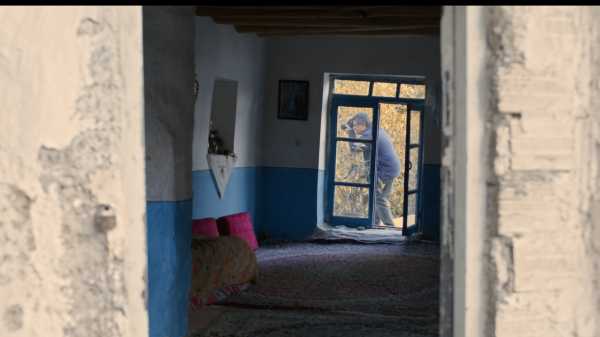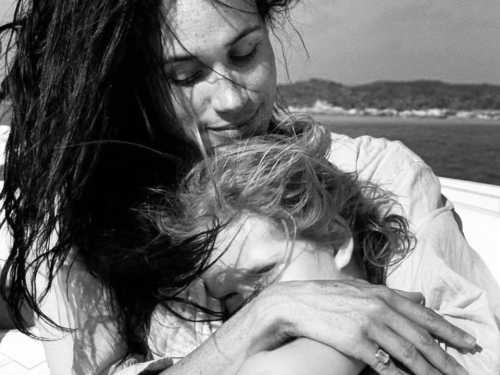
Formalism gets a bum rap. No style carries intrinsic virtue, but formalism, at its best, is a powerful expression of political crisis, embodying realities too extreme for plain narration. In particular, the formalism of reflexive cinema, which exposes the artifices of fiction, seems made to call out the fabrications of a censorious regime’s stage-managed public images. Soon after the 1979 Islamic Revolution, reflexive metafictions became a specialty of the Iranian cinema, led by the late Abbas Kiarostami and followed by his onetime assistant and longtime associate Jafar Panahi. (In Panahi’s 1997 film, “The Mirror,” a child actress declares, “I’m not acting anymore,” and takes her head scarf off—reflexivity doesn’t get much more explicit than that.)
In recent years, Panahi has had even more radical kinds of reflexivity thrust upon him by the regime itself: in 2010, after his arrest on political charges, he was banned from making films, speaking to the press, and travelling outside the country. He was also given a six-year prison sentence, which was suspended, and he was instead put under house arrest. He responded with a film called “This Is Not a Film,” made mostly in his Tehran apartment, in which he diagrams and describes and even acts out a movie that he wouldn’t be able to make with cast and crew. His movies since then have involved similar ruses. In “Taxi,” from 2015, he plays himself as a cabdriver and builds the action with passengers whom he records on what is ostensibly his security camera. (This July, amid an ongoing crackdown on filmmakers and other artists, Panahi was arrested again; he’s currently incarcerated, sentenced to serve out his original six-year prison term.)
Panahi’s latest film, “No Bears,” which played at the New York Film Festival in October and opens Friday at Film Forum, is his most daring, most intricate, and most defiant metafiction, and its very complexity is a crucial aspect of its political fury. The movie is composed of three main strands, each of which has its own component threads; in their particulars and taken together, they evoke the grinding difficulties of social life—and the paranoid labyrinth of inner life—under a repressive regime. In “No Bears,” Panahi plays a filmmaker with his own name (we’ll call the character “Jafar”), who has travelled from his home in Tehran to a village near the border with Turkey in order to direct a film. In depicting the absurd constraints that he himself faces, Panahi exposes the absurdities of daily existence in Iran and the pathologies that afflict the population as a result of its misrule. He also displays, with a scathing severity, the guilt and the complicity that he bears in making movies and enlisting the participation—witting or unwitting, intended or incidental—of others. He carries, however unjustly, the mark of dissidence and (political) crime, and this turns out to be as contagious as it is dangerous.
Though Jafar, who faces legal troubles akin to those of the real-life Panahi, is making a movie, he may not technically be violating a ban on filmmaking, because Jafar is not really directing. Rather, he’s tele-directing a crew and actors who are just over the border, in a Turkish town. From the little house that he’s renting, he watches, via Internet, on his laptop computer, the scenes as they’re being shot (on video), and he passes his comments along to his assistant, Reza (Reza Heydari), and to the actors, Zara (Mina Kavani) and Bakhtiar (Bakhtiyar Panjeei), a couple. The pair are enacting a drama that is also purportedly the real, present-tense story of their lives. They’re Iranians who are living in exile in Turkey and trying to get hold of stolen passports in order to make their way safely to Europe, but the effort to procure the precious documents (and to film their procurement) puts their relationship to a severe test.
Meanwhile, in the village where Jafar is staying, he gets involved in drama of his own—or, rather, of his temporary neighbors. In his few days there, he gets curious about village life, with its elaborate and highly codified traditions, many of which have to do with marriages and their arrangements. He delegates his temporary landlord, a ditchdigger named Ghanbar (Vahid Mobasheri), to video-record a premarital ceremony, and, while it’s taking place, he photographs some residents. Soon, he’s accused of having taken a picture of an illicit couple—a woman named Gozal (Darya Alei) and a man named Soldooz (Amir Davari)—who want to marry despite her having been promised, at birth (yes, at birth), to another man, Yaghoub (Javad Siyahi). Yaghoub and his relatives demand the photo as proof of the illicit relationship; after Jafar denies its existence, he’s summoned by the village chief (Naser Hashemi), confronted by an angry mob, and forced to swear to his story before the village elders. (Gozal fearfully begs Jafar not to disclose any such photo, and Yaghoub is preparing to take matters violently into his own hands.)
The third strand of the tangled tale is focussed on Jafar’s own legal issues. He’s visited by Reza, the bearer of a legitimate passport, who comes and goes freely between Iran and Turkey. Reza brings him a hard drive containing the film’s footage and guides him on a lonely smugglers’ road to a hilltop from which they can see, from not-so-afar, the Turkish city where Jafar’s movie is being filmed—and where, with a single step across an invisible line, Jafar can defy his ban on international travel, enter Turkey, and, if he so chooses, live beyond the reach of the Iranian government.
There’s palpable joy in the sheer ingenuity of the movie’s conception and in the realization of it. Panahi goes at his subjects with an irrepressible cinematic verve that extends from the story and the dialogue to the performances and the very presences of the actors. (Some are professionals, others are nonprofessionals recruited on location.) Yet for all the immediacy, the spontaneity, the vitality of the moment-to-moment experience, each moment also seems perched on the precipice of tragedy—and that grim instability is built into the movie’s style. Many of the film’s most dramatic sequences are night scenes filmed with daringly little light, as in remote settings illuminated solely by the interior light of Jafar’s car, the screen on his cell phone, or the full moon, or on desolate dirt roads lit only by headlights. Much is done in secret: important things are hard to see and the effort of discernment in high-stakes situations is crucial to the drama. Panahi relies on long takes without longueurs, many executed using pan shots that unite multiple fields of action and a varied array of characters in a single sweep, others featuring fixed-frame compositions in which the action is often multiplied by the presence of interested observers contemplating the dramatic events and extending them into an extra spatial and psychological dimension.
The main observer is Jafar himself. The camera often assumes his point of view—his troubling discoveries and piercing revelations. As an actor, Panahi delivers a performance that incarnates the weight of the character’s observations; he remains stoic and impassive, even when his voice flashes with indignation. Jafar is the Heisenbergian observer whose presence, with or without cameras, perturbs his surroundings and adds to the troubles of those around him. As he makes his way through the village, he unleashes a Pigpen-like whirlwind of chaos, because what he’s really observing, more than any individuals, is the invisible net of unbearable surveillance in which they’re caught—and which tightens with fear, in menacing cruelty, when it’s in danger of being exposed.
The material particulars of that surveillance are filmed with a wise and wild discernment. Jafar is dissuaded from climbing to a roof for a cell-phone signal, lest neighbors think he’s “peeping.” Ghanbar, the landlord, turns the camera off when a female cousin of his is speaking, for fear that he’ll record her saying “a bad word.” Near the border, the savvy Reza warns Jafar of “ten eyes” that are watching. As the situation in the village deteriorates, owing to the illicit romance of which Jafar may or may not have photographic evidence, the national Revolutionary Guard makes threats and demands. Moreover, some villagers are caught in a fake economy dominated by smuggling and black marketeering, and this adds another layer of fear of discovery. Amid such ambient daily terror, Jafar’s glances into the rearview mirror while driving take on a Hitchcockian frenzy. (The story of the Turkish-based actors and couple Zara and Bakhtiar, in their emotional and spiritual limbo of exile, is held in the same grid of oppression and fear; Zara gives voice to a traumatic backstory of jail and torture, prior to exile.)
The intertwined elements of Iran’s ubiquitous surveillance are presented, in equal measure, as oppressive law and irrational tradition. One of the village’s few bold freethinkers sums up the movie in a single line: “Town people have problems with authorities; we have problems with superstition.” Jafar, a town person, comes into conflict with the villagers over superstition, while bringing the authorities’ sharpened attention to bear on them because of his own legal trouble. He’s not the cause of tragedy—he didn’t bring the illicit couple together, he didn’t urge Zara and Bakhtiar to travel under false pretenses. But, in his effort to bear witness, he himself becomes a tragic figure, implicated in the very web of surveillance that also targets him. The furious core of his tragic knowledge is that the main targets of oppressive religious rule, whether governmental or traditional, are women; the main purpose of enforced dogma is to deprive women of their autonomy, especially their sexual freedom. In the face of such enormity, of such outrage, Jafar’s—rather, Panahi’s—stoic gaze takes on a blank bewilderment as he stares out to nowhere, in an absolute existential void. ♦
Sourse: newyorker.com






